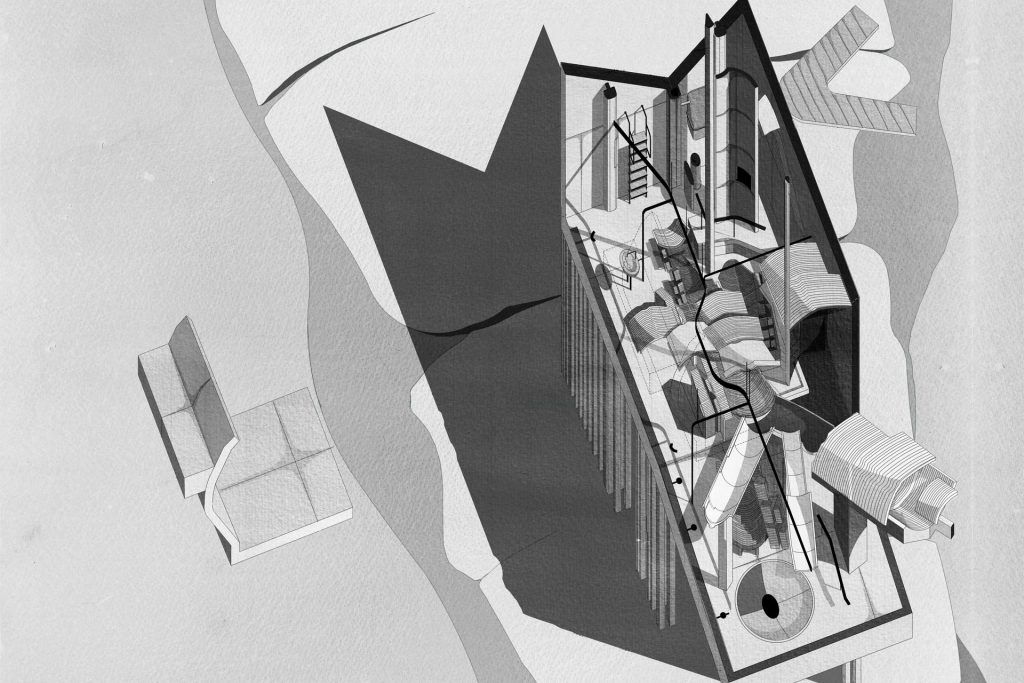The last Kent School of Architecture open lecture of 2018 will be hosted by KASA (Kent Architectural Student Association), and will be given by Matthew Butcher, editor and founder of P.E.A.R. (Paper for Emerging Architectural Research) and Senior Lecturer in architecture at the Bartlett School of Architecture. The lecture, entitled, ‘Provocation and Performance’, will take place on Tuesday 27 November at 6PM in Marlowe Lecture Theatre 1.
Matthew Butcher is an academic, writer and designer. His work has been exhibited at the V&A Museum, London; Storefront for Art and Architecture, New York; The Architecture Foundation, London and the Prague Quadrennial, Prague. Recent projects and exhibitions include ‘2EmmaToc/Writtle Calling’ a temporary radio station in Essex, ‘Flood House’ a floating architecture developed for Southend and ‘The Mansio’, a retreat for writers and poets, which was nominated for the 2017 Architects Journal Small Projects Prize. Matthew is also the editor and founder of the architectural newspaper P.E.A.R.: Paper for Emerging Architectural Research and Senior Lecturer in Architecture at the Bartlett School of Architecture; where he is also Director of the Undergraduate Architecture Programme. He has contributed articles and papers for journals including Conditions, Architecture Research Quarterly (ARQ), the RIBA Journal and Architecture Today. He is also Guest Editor, along with Luke Pearson, for the upcoming special issue of AD titled Re-Imagining the Avant-Garde: revisiting the architecture of the 1960s and 1970s.
Matthew Butcher’s work, formed of designs, actions and events, operates as a provocation within particular social, cultural and political contexts associated with the inhabitation of suburban and rural environments. This includes coastal sites in Essex affected by rising sea levels or the neglect of abandoned mines in the South West of England. Manifesting as built structures, events, drawings and scaled models, the work explores spaces and forms that are performative. That is to say, the material state of the architecture changes, or is perceived to change, in relationship to conditions such as the environments in which they are located, or through the actions of the people who inhabit them. Cross referencing his practice with the work of architects and artists working across the disciplines of art, architecture and performance in the 1970’s, Butcher will seek to ask whether we can, through the re-contextualization of historical models, re-enact an architectural Avant-Garde today? And he will question what the use of this mode of practice can mean to the future of the discipline?

